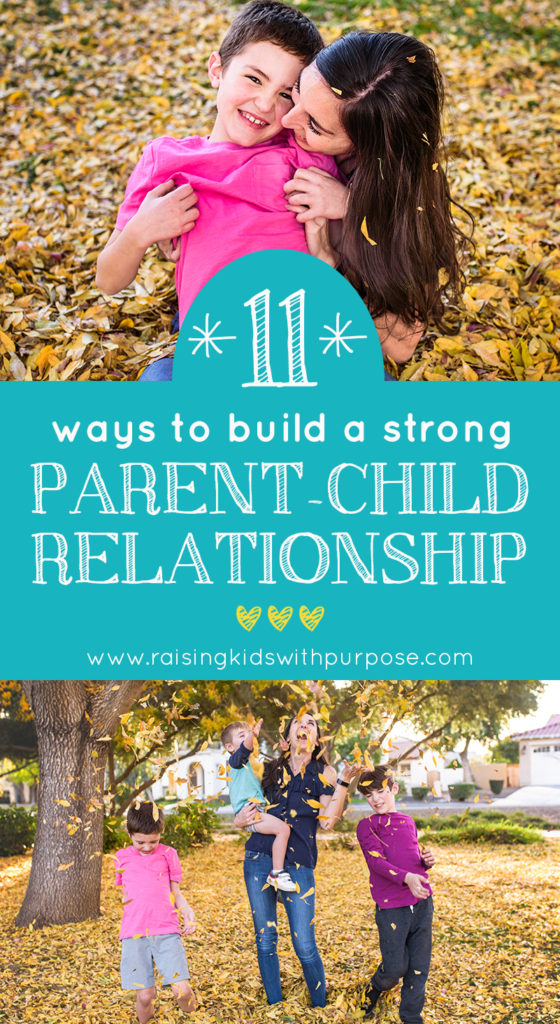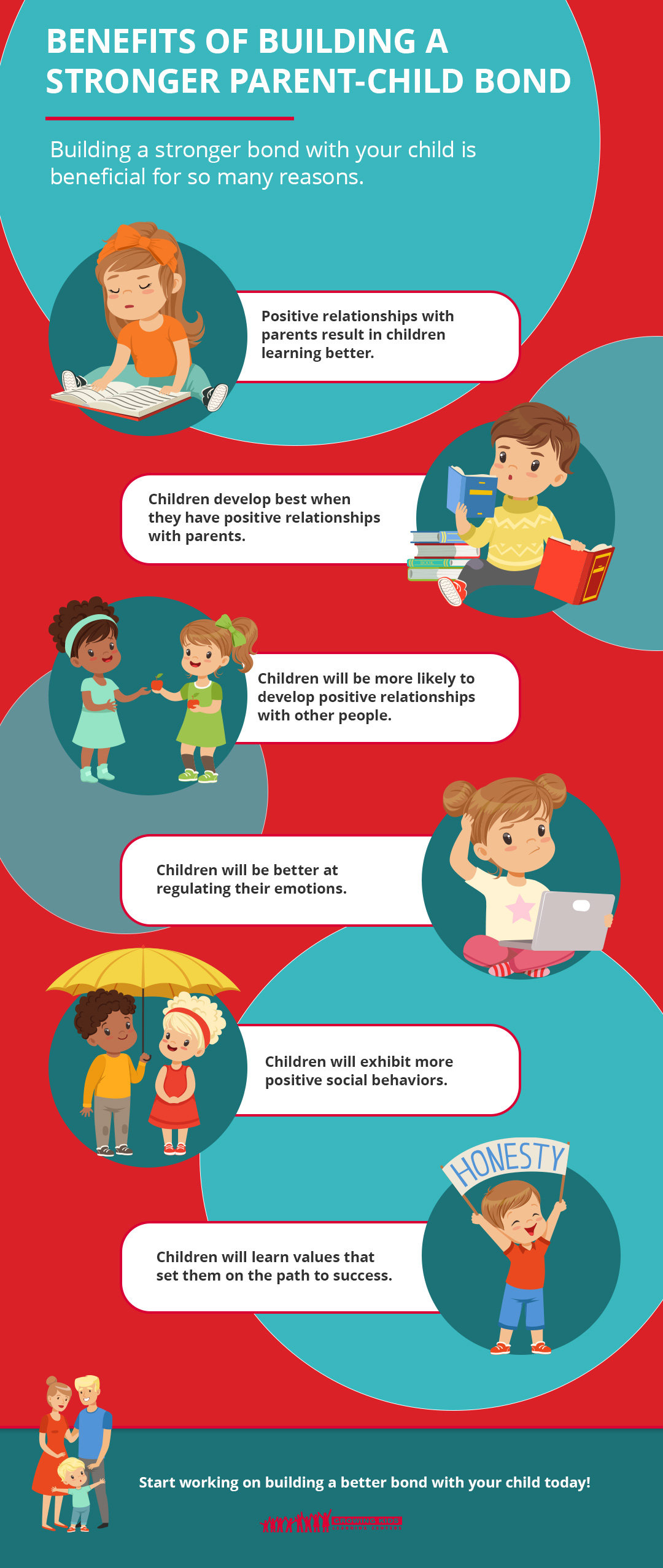Building a strong parent-child bond is crucial for a healthy relationship. It helps in the child’s emotional and social development.
A close bond ensures a sense of security and trust. Parents play a key role in their children’s lives. A strong bond can make all the difference. It encourages open communication, builds trust, and fosters mutual respect. Children who share a strong bond with their parents often feel more confident and secure.
They are better equipped to handle stress and face challenges. The foundation of this bond starts early and needs nurturing over time. Simple acts of love, attention, and understanding can strengthen this connection. This article will explore ways to create and maintain a strong parent-child bond, ensuring a loving and supportive relationship.
Effective Communication
Effective communication is the cornerstone of a strong parent-child bond. It’s not just about talking, but truly connecting with your child on a deeper level. This connection builds trust, understanding, and mutual respect. Let’s dive into the essential components of effective communication, focusing on listening skills and expressing emotions.
Listening Skills
Listening is more than hearing words. It’s about understanding the feelings and thoughts behind those words. When you actively listen to your child, you show that you value their opinions and experiences.
How can you improve your listening skills? Start by giving your full attention. Put away distractions like your phone or TV. Make eye contact and nod to show you’re engaged. Repeat back what your child says in your own words to ensure you’ve understood correctly.
One evening, my daughter came home upset about a disagreement with a friend. Instead of jumping in with advice, I listened. I asked questions to understand her feelings. This simple act made her feel heard and valued. It strengthened our bond and taught me the power of just being there.
Think about the last time you felt truly listened to. It probably made you feel respected and important. You can offer this same gift to your child by honing your listening skills.
Expressing Emotions
Expressing emotions is a vital part of effective communication. It’s essential for children to learn that it’s okay to talk about how they feel, whether they’re happy, sad, angry, or scared.
How can you help your child express their emotions? Start by modeling this behavior yourself. Use “I” statements to express your feelings clearly. For example, say “I feel frustrated when the toys are not put away” instead of “You never clean up your toys.” This approach reduces blame and encourages open dialogue.
Once, my son was upset about losing a game. Instead of dismissing his feelings, I shared a time when I felt disappointed. We talked about how it’s normal to feel that way and how to cope with those emotions. This honest conversation helped him feel understood and taught him that it’s okay to express his feelings.
Encourage your child to label their emotions. If they say they’re feeling “bad,” help them pinpoint the exact emotion—are they sad, angry, or worried? This practice not only helps them understand their feelings but also improves their emotional vocabulary.
Effective communication is a two-way street. It involves listening and expressing emotions openly. By practicing these skills, you can build a stronger, more trusting relationship with your child. What steps will you take today to enhance your communication with your child?

Credit: raisingkidswithpurpose.com
Quality Time Together
Spending quality time together is crucial for building a strong parent-child bond. It helps create lasting memories and strengthens your relationship. Engaging in shared activities and establishing routine bonding moments can make a significant difference.
Shared Activities
Shared activities allow parents and children to connect on a deeper level. These activities could be anything that interests both of you. Cooking a meal together is a great option. It’s fun and teaches valuable life skills.
Playing board games is another excellent choice. It encourages teamwork and healthy competition. Taking up a hobby like gardening can also be rewarding. It provides a sense of accomplishment and promotes patience.
Routine Bonding
Routine bonding moments are just as important as shared activities. These moments can be small but meaningful. Reading a bedtime story every night is a wonderful habit. It relaxes your child and strengthens your bond.
Having a weekly movie night can also be a great way to bond. Choose a film everyone will enjoy. This creates a tradition everyone looks forward to. Regular family dinners are another key bonding opportunity. They provide a chance to catch up and share experiences.
Building Trust
Building trust with your child is the foundation of a strong bond. Trust allows your child to feel safe and secure. It fosters open communication and mutual respect. Establishing trust requires consistent effort and a positive environment.
Consistency And Reliability
Consistency is key in building trust. Children rely on routines and predictability. Stick to a daily schedule. Regular bedtime, mealtime, and playtime create stability. Be reliable in your actions. Fulfill promises and commitments. If you say you will do something, make sure you do it.
Reliability builds confidence in your child. They will know they can count on you. This sense of security is crucial for their emotional development. Show up for them consistently. Be present physically and emotionally.
Positive Reinforcement
Positive reinforcement encourages trust and strengthens the bond. Praise your child for good behavior. Acknowledge their efforts and achievements. This boosts their self-esteem and motivates them to keep trying.
Use words of encouragement. Simple phrases like “Good job” or “I’m proud of you” go a long way. Celebrate small victories together. Positive reinforcement makes your child feel valued and appreciated.
Build a supportive environment. Create opportunities for your child to succeed. Offer guidance and support when they face challenges. This helps them trust your judgment and seek your advice.

Credit: growingkids.com

Credit: in.pinterest.com
Frequently Asked Questions
How Can You Strengthen Parent-child Bonds?
Spend quality time together, communicate openly, listen actively, engage in fun activities, and show affection regularly.
Why Do My Kids Stress Me Out So Much?
Kids can stress you out due to their high energy levels, constant demands, and unpredictable behavior. Balancing their needs with your responsibilities can be challenging. Practice patience, set boundaries, and ensure self-care to manage stress effectively.
How To Help A Child Who Has Been Abandoned By A Parent?
Provide emotional support and reassurance. Encourage open communication and expression of feelings. Seek professional counseling. Foster a stable and loving environment. Engage in activities that build self-esteem and trust.
How To Fix A Broken Parent-child Relationship?
Communicate openly, listen actively, and show empathy. Spend quality time together. Seek professional help if needed. Practice patience and consistency.
Conclusion
Building a strong parent-child bond takes time, effort, and love. Spend quality time together. Listen actively to your child’s thoughts. Show empathy and understanding. Share activities and hobbies. Establish trust through open communication. Celebrate achievements, big or small. Foster a supportive environment.
Set clear and consistent boundaries. Encourage independence while offering guidance. By following these steps, you strengthen your relationship with your child. A strong bond creates a lifetime of mutual respect and love. Remember, every small effort counts in building a lasting connection.

